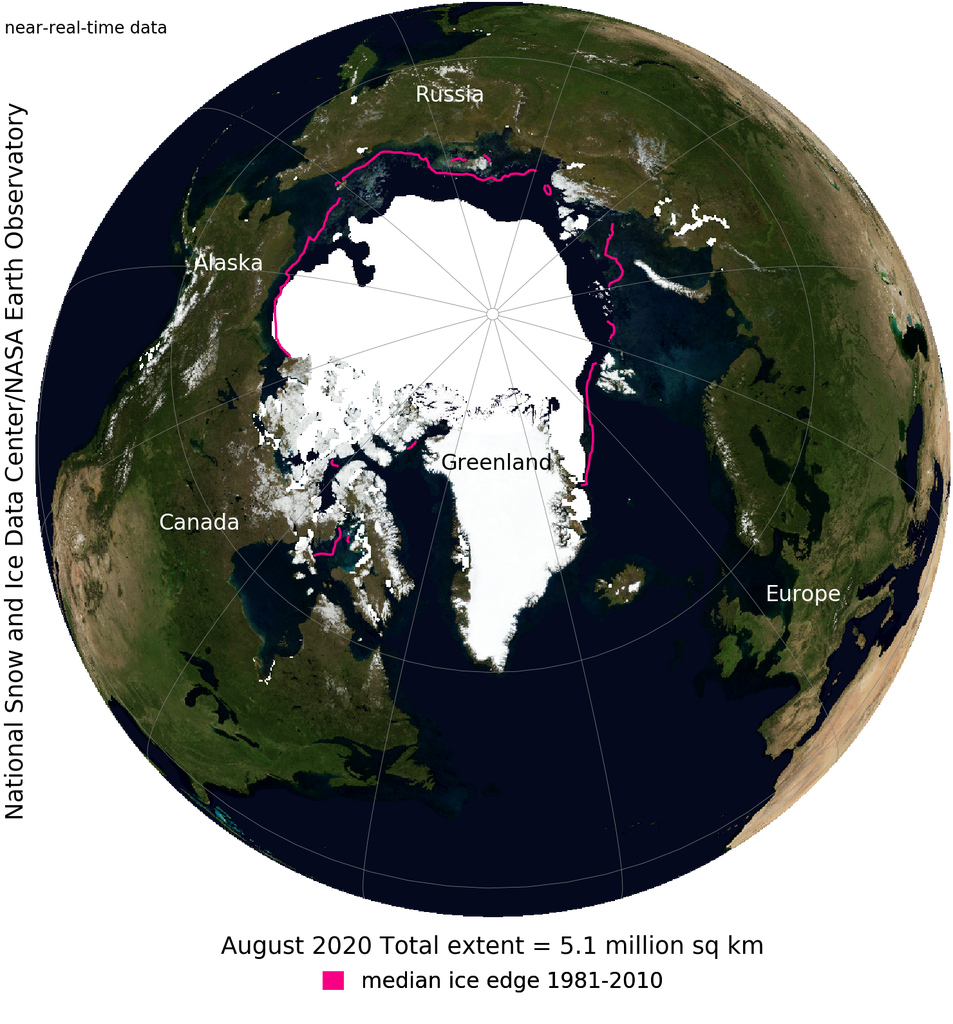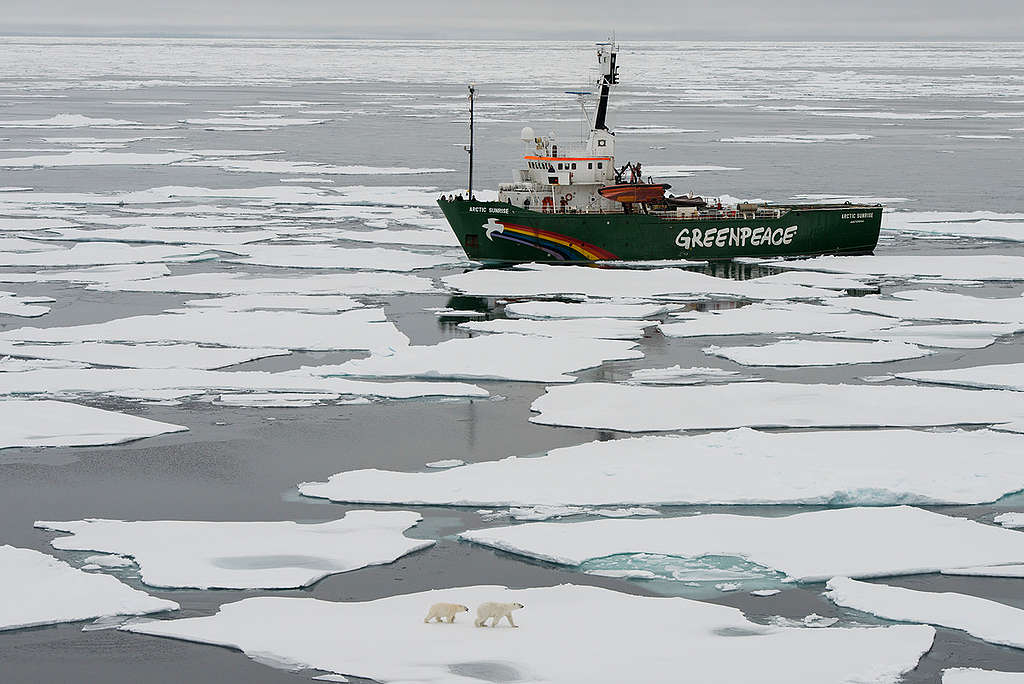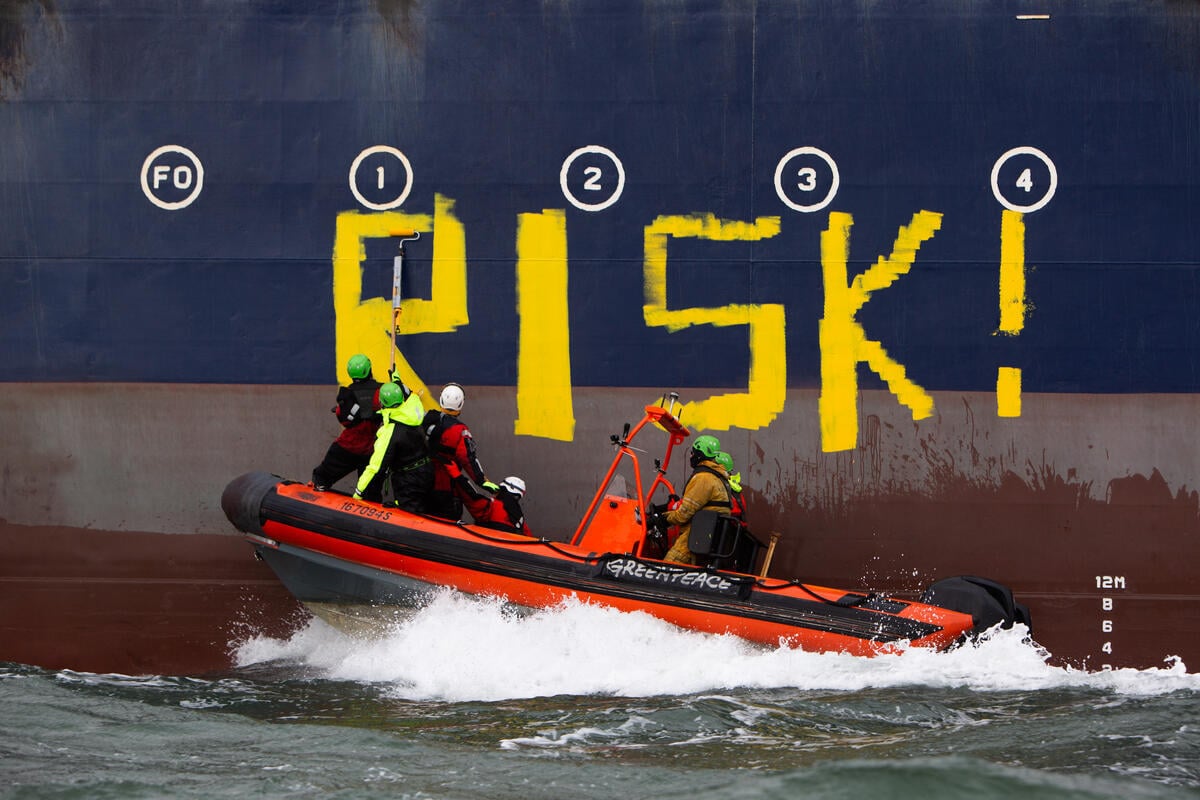The warming Arctic is one of our key global indicators of climate breakdown. So we’re heading there to document and bear witness to the yearly sea ice minimum. Have you heard about that before? It’s the day when Arctic sea ice reaches its smallest extent, occurring at the end of the northern summer melt season, generally during September. And unfortunately, this year may be one of the lowest ever recorded.
 © National Snow and Ice Data Centre / NASA Earth Observatory
© National Snow and Ice Data Centre / NASA Earth ObservatoryWe will be there to show to the world that the climate breakdown we are living through brings serious impacts to the oceans and its wildlife.
As the ice keeps melting, this area opens up to allow for new shipping routes and other industrial activities, bringing the same threats that our oceans already face every single day. Worse still, a new study published in August in the journal Nature Climate Change, supports predictions that the Arctic could be totally free of sea ice during summer by 2035.
That’s why we need you. Healthy oceans help to support people, fight climate breakdown and protect wildlife, so it’s critical that we protect the oceans with a robust Global Ocean Treaty that allows at least 30% of the oceans to become fully protected ocean sanctuaries by 2030. You can support this treaty by adding your name to the petition
Join us on this epic voyage to the Arctic by following us on Instagram and signing the petition.

We’ve journeyed from Pole to Pole, on an epic voyage to reveal the wonders that lie beneath the surface of our oceans and confront the threats they face. And we will continue to shine a light on what is happening in the the most remote and pristine areas on Earth, to demand they receive the protection they so critically need.
Will McCallum is the Head of the Oceans Program at Greenpeace UK.



